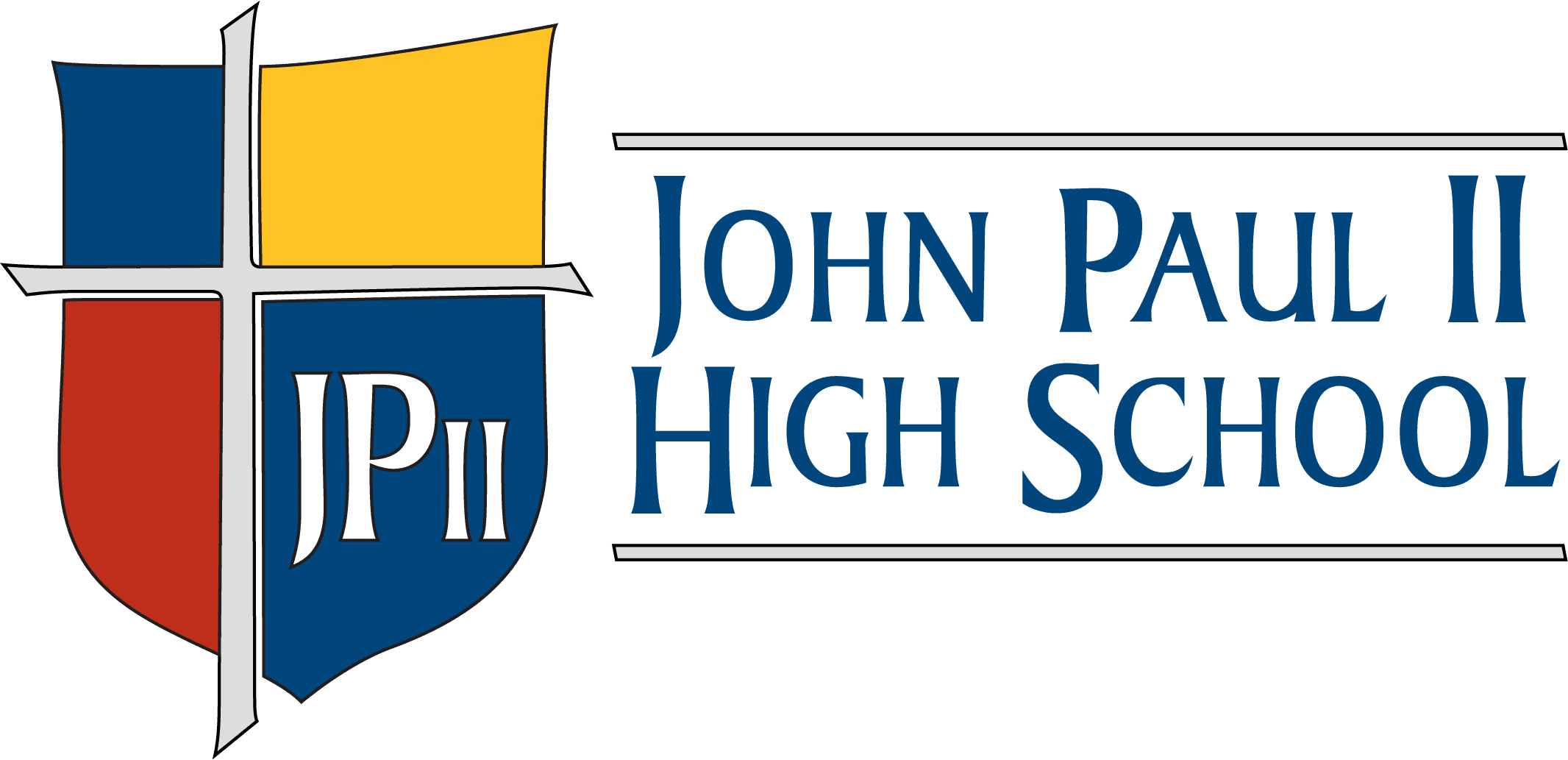Next Gen Innovation
“The future is in your hearts and in your hands”
– SAINT JOHN PAUL II
Next Generation Leaders are created TODAY.
At John Paul II High School critical thinking is developed in a variety of ways:

Computer Science

Social Innovation Lab

STEAM
Learn more about our innovative offerings:
The extensive Computer Science curriculum empowers students in programming, advanced graphics, and software development. One of our pioneering computer science courses is Advanced Graphics Programming. This course teaches and explores advanced computer science concepts from a graphics point of view. This uses a unique video game case study approach. Students design, develop, and enhance a sequence of video games. Video games include puzzles, Tic-Tac- Toe, Connect-Four, Tetris, Plumberman, Solitaire and many other well-known games.
Students also have the opportunity to take the PCEP Certification. PCEP is a Certified Entry-Level Python Programmer Certification used as a professional credential that measures the ability to accomplish coding tasks related to the essentials of programming in the Python language. This certification is a starting point to launch a career in software development, Python programming, and related technologies. It is also an excellent way to get a foot in the door with an employer and land a junior-level job in the IT sector.
eSports takes video gaming to another level with organized competitive gameplay between two teams, governed by its own strict set of rules and guidelines. Students will also learn how build their own computers. It demands critical thinking, communication, teamwork and creativity in order for students to succeed.
Today, esports is growing exponentially with over 400 million fans worldwide and regularly selling out arenas around the world. Currently, there are more than 200 colleges and universities offering tens of millions of dollars in scholarships. Establishing esports in high school enables students to do what they love and provides them with additional opportunities to earn recognition.
Forensic Science introduces students to the application of science to connect a violation of law to a specific criminal, criminal act, or behavior and victim. Students learn terminology and procedures related to the search and examination of physical evidence in criminal cases as they are performed in a typical crime laboratory.
Students learn to apply critical-thinking and problem-solving skills to analyze decisions involving earning and spending, saving and investing, credit and borrowing, insuring and protecting, and college and postsecondary education and training. Seniors receive priority signing up for this course.
Students learn introductory Engineering concepts, build a robot with provided step-by-step instructions using an erector-style VEX Robotics kit, and learn to program the robot using a special version of the C programming languages called RobotC. Students also learn to design a virtual robot using special CAD software called Autodesk Inventor. Ultimately, students learn to build robots from their own designs. From there, they can compete in class and beyond.
The Robotics team is an extra-curricular, as seen to the right. This team works in their dedicated Robotics lab to showcase their skills in building robots from scratch, programming them, and racing them against the clock to complete specific tasks efficiently.
Scientific Research and Design is a broad-based course designed to allow students to work intensively with a scientific research institute. The course has components of any rigorous scientific program of study from the problem identification, investigation design, data collection, data analysis, formulation, and presentation of conclusions. A significant amount of time will be spent on the scientific writing process.
We recognize our world’s social problems are becoming increasingly complex; so too are the answers for solving these social problems. Where traditional problem-solving strategies have become ineffective, we are challenged to look at issues through different lenses.
Through the Social Innovation Lab, students work alongside community partners in developing and implementing these solutions. Students further develop their skills in research and writing, problem-solution design, public speaking, organization, and project management. This unique class offers students the opportunity to examine their impact on social, economic, and environmental challenges in the real world today.
This Science, Technology, Engineering, Arts, and Mathematics (STEAM) course focuses on Engineering Projects in Community Service (EPICS). EPICS is a service-learning design course in which teams of students work together on long-term projects that benefit the community. The project work centers around the engineering, technology, and computing needs of a community partner. Interdisciplinary team interaction is an integral element for project success.
Teams are composed of students with varying interests and backgrounds. Projects are intended to solve real problems, are defined in partnership with community partners, and span the complete design process cycle (problem identification – specification development – conceptual design – detailed design – production – service/maintenance – retirement).
The STEAM center is a dedicated laboratory used by many science classes and extracurriculars. The STEAM Center was made possible by a $50,000 Grant and has more uses each and every day.


Robotics Team
Robotics Class
Social Innovation Lab




© 2024 John Paul II High School | Privacy Policy







